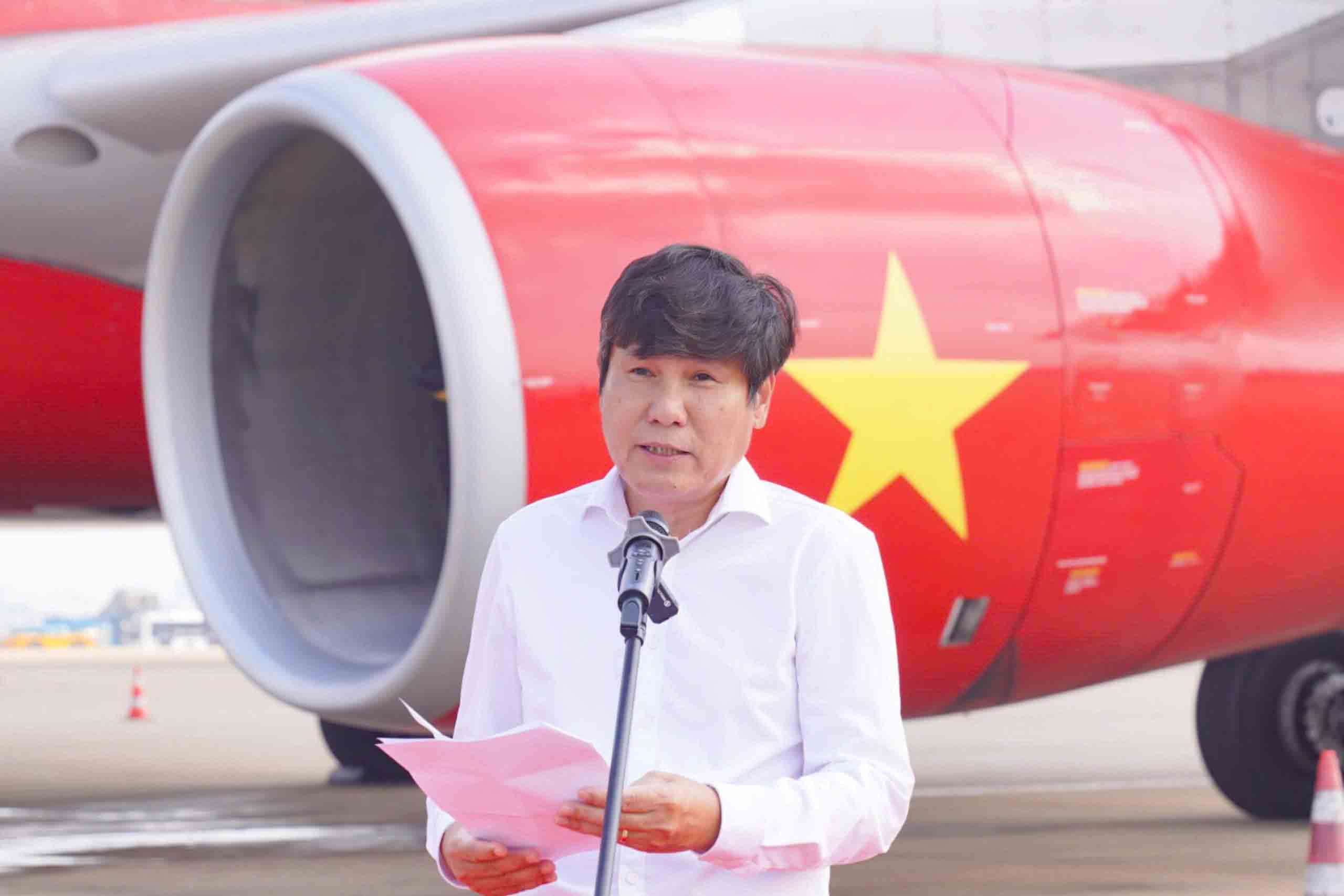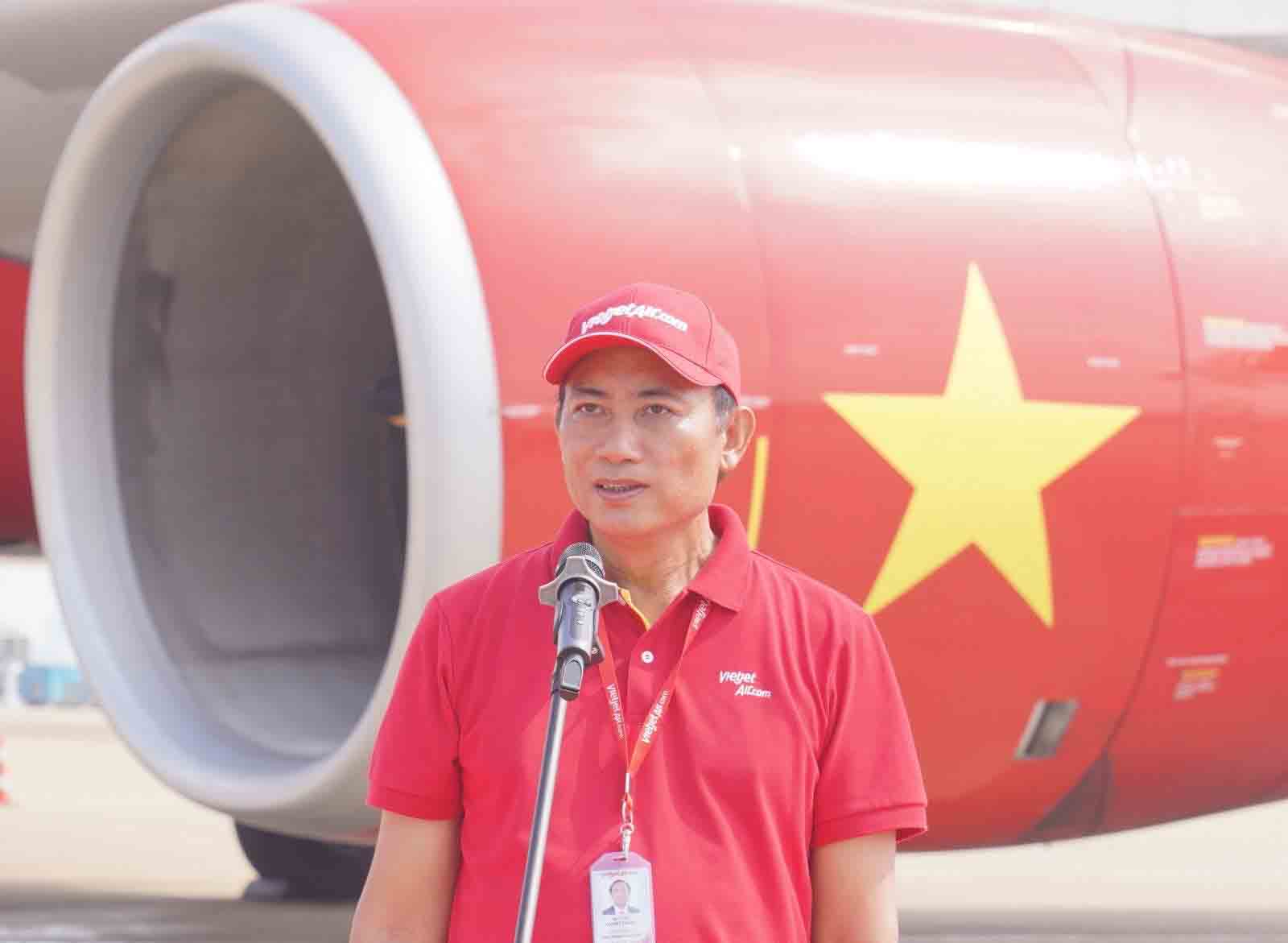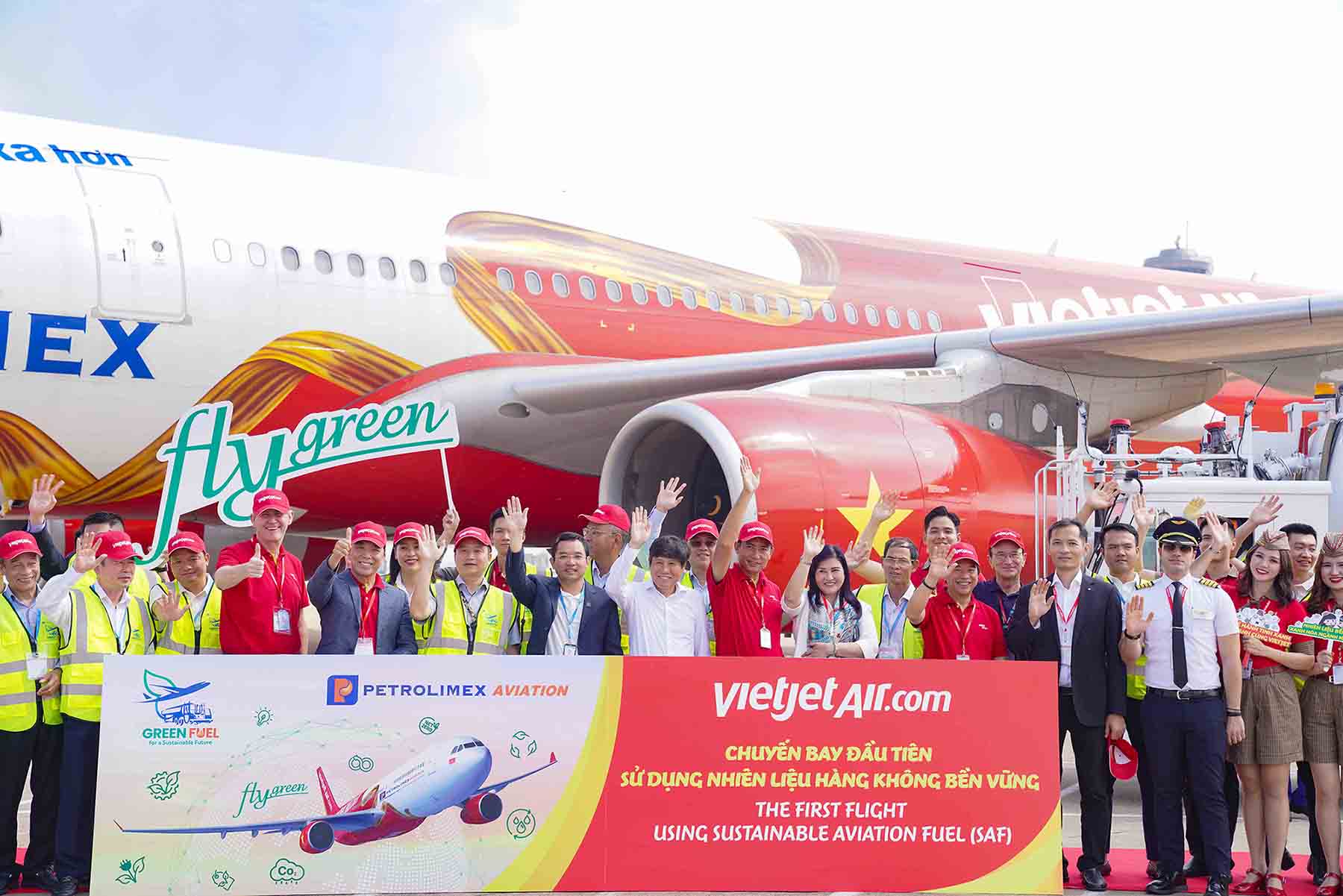On October 17, two consecutive flights using SAF were operated by Vietjet from Tan Son Nhat Airport (HCMC) to Melbourne (Australia) and Seoul (Incheon, South Korea) with the airline's modern aircraft, fueled by Petrolimex Aviation.
Produced from renewable and sustainably sourced raw materials such as used cooking oil, agricultural by-products, wood biomass, municipal waste, etc., SAF sustainable aviation fuel can help reduce carbon emissions by 80% compared to traditional fuels, meet strict international aviation standards, and be safe for use in commercial operations.
The first flights using SAF fuel are an important milestone not only for the two businesses but also for the Vietnamese aviation industry.

Director of the Civil Aviation Authority of Vietnam Dinh Viet Thang congratulated Vietjet Air and Petrolimex Aviation for successfully organizing the first international flights using SAF sustainable aviation fuel refilled in Vietnam, clearly demonstrating responsibility in using sustainable fuel.
"This is a source of pride for the entire industry as we contribute to environmental protection, sustainable development, and affirm that Vietnam is a responsible member of international aviation," said Mr. Thang.
Mr. Pham Van Thanh - Chairman of the Board of Directors of Vietnam National Petroleum Group said: "The fact that Petrolimex Aviation Fuel Joint Stock Company first filled SAF for Vietjet's international flights to Australia and Korea is an extremely important milestone not only for Petrolimex Aviation but also for the entire Petrolimex Group in the development strategy from now to 2030, with a vision to 2045, gradually moving towards becoming a green, clean, and environmentally friendly energy group.
Vietnam National Petroleum Group pledges to support, back and create conditions for Petrolimex Aviation to continue researching, developing and supplying SAF products regularly and long-term, joining hands to contribute to greening the aviation industry for a sustainable future."

Today's two Vietjet flights using SAF fuel are especially meaningful, green flights, green aviation with good, environmentally friendly flight experiences for people and tourists, especially in international skies.
As a pioneer airline in research, development and use of sustainable fuel SAF, Vietjet is committed to continuing to contribute to reducing carbon emissions in the aviation industry and sustainable development.
Vietjet also cooperates with prestigious international partners to conduct research, development, supply and use of SAF, in line with the goal of reducing net emissions to 0 (Net Zero) by 2050 as committed by Vietnam at COP26.
SAF is considered the future fuel of the aviation industry. In addition to the first test flights, the cost of producing SAF will continue to decrease, contributing to ensuring SAF fuel on commercial flights.
This is a continuation of a series of activities aimed at reducing carbon emissions, protecting the environment, and promoting sustainable development that Vietjet started more than 10 years ago when it only had 3 aircraft.

Vietjet is also a pioneer in converting from paper tickets to electronic tickets, using online payment and check-in methods to minimize the use of paper and ink, using environmentally friendly and recyclable materials on aircraft, reducing fuel consumption and CO2 emissions from engines, etc.
Environmental protection programs and initiatives that Vietjet accompanies are carried out regularly and continuously, such as planting trees, cleaning the ocean, developing creative and environmentally friendly cities, etc.
As a sustainable enterprise, Vietjet has implemented many environmental protection and sustainable development activities since its establishment by optimizing resources.
Vietjet is a pioneer airline in implementing green transformation, the first airline to have an ESG sustainability report, Vietjet will continue to promote the use of SAF and contribute to the successful implementation of the National Strategy on green growth, the goals of reducing net emissions to zero by 2050, protecting the environment, and sustainable development.











